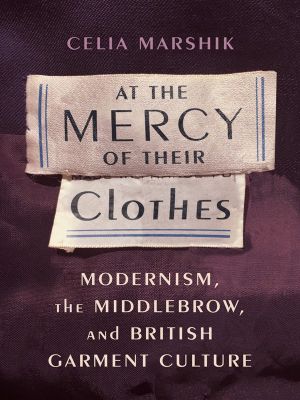At the Mercy of Their Clothes, Modernism, the Middlebrow, and British Garment Culture

- Authors
- Marshik, Celia
- Publisher
- Columbia University Press
- Tags
- scottish , his016000 , history , historiography , lit004120 , irish , welsh , literary criticism , european , english
- Date
- 2016-11-29T00:00:00+00:00
- Size
- 10.34 MB
- Lang
- en
In much of modern fiction, it is the clothes that make the character. Garments embody personal and national histories. They convey wealth, status, aspiration, and morality (or a lack thereof). They suggest where characters have been and where they might be headed, as well as whether or not they are aware of their fate. At the Mercy of Their Clothes explores the agency of fashion in modern literature, its reflection of new relations between people and things, and its embodiment of a rapidly changing society confronted by war and cultural and economic upheaval. In some cases, people need garments to realize themselves. In other cases, the clothes control the person who wears them.
Celia Marshik's study combines close readings of modernist and middlebrow works, a history of Britain in the early twentieth century, and the insights of thing theory. She focuses on four distinct categories of modern clothing: the evening gown, the mackintosh, the fancy dress costume, and secondhand attire. In their use of these clothes, we see authors negotiate shifting gender roles, weigh the value of individuality during national conflict, work through mortality, and depict changing class structures. Marshik's dynamic comparisons put Ulysses in conversation with Rebecca , Punch cartoons, articles in Vogue , and letters from consumers, illuminating opinions about specific garments and a widespread anxiety that people were no more than what they wore. Throughout her readings, Marshik emphasizes the persistent animation of clothing--and objectification of individuals--in early-twentieth-century literature and society. She argues that while artists and intellectuals celebrated the ability of modern individuals to remake themselves, a range of literary works and popular publications points to a lingering anxiety about how political, social, and economic conditions continued to constrain the individual.--Faye Hammill, University of Strathclyde, Glasgow